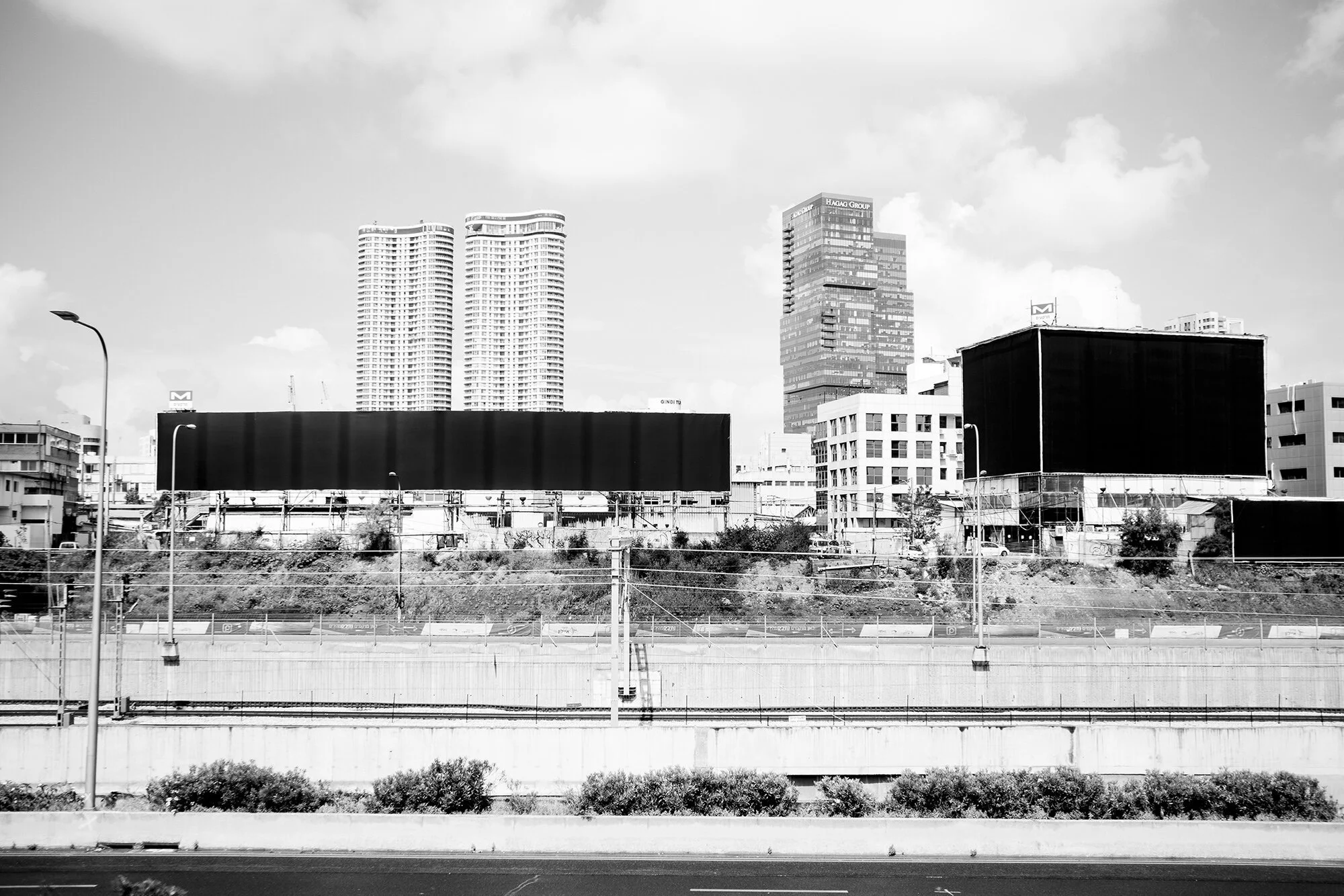Maybe It’s a Sign
2020
A few months ago, as cities across the world went into lockdown, once bustling high streets fell quiet, their shops shuttered and strangely blank-looking. Some of those shutters have started to lift again, but this will be how many of us remember those early weeks: deserted thoroughfares, abandoned building sites, once busy junctions suddenly wide open. The Israeli photographer Daniel Tchetchik noticed something else, too. He wanted to convey the “eerie and disturbing feeling of the lockdown”, he recalls in a statement accompanying his latest body of work, but images of “empty streets or people with masks” didn’t quite capture it. Instead, in April 2020, he drove around Tel Aviv “just looking at the urban sprawl: vacant, quiet . . . And then I started to spot them, huge black monoliths that were a by-product of the full lockdown.” These monoliths were roadside billboards: with little passing traffic, the companies that usually rented them had no reason to do so. So they stood there, advertising nothing. The absence of other cars even meant Tchetchik was able to stop on the highway, get out and photograph them. Stripped of their brand names, products, smiling faces — and all the carefully calibrated connotations those images carry — the boards invite different interpretations. “Their shapes . . . sent my imagination into the past,” Tchetchik writes. “Some looked like . . . spitting images of Kubrick’s monoliths from 2001: A Space Odyssey, or perhaps huge smartphones that had finally run out of battery, and others reminded me of tombstones.”















